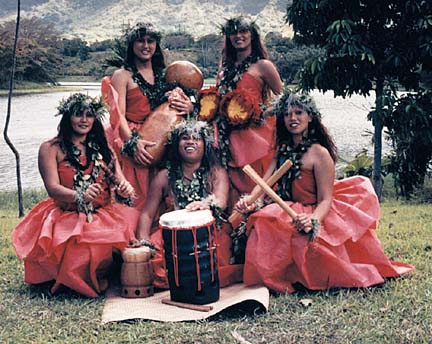


When Sami Akuna first appears on the screen, his looks are vaguely menacing; he sports the earliest shades of a goatee and a wool cap is pulled low over his brow. When he speaks however, his words are thoughtful and his delivery is gentle. ‘Ke Kulana’ examines
isle gay identityFilm festival turns spotlight on isle works
HIFF FACTS
By Shawn 'Speedy' Lopes
SLopes@starbulletin.com"We're so close knit here and it's so small that everyone kind of knows everybody," he says in a near-whisper.
It becomes increasingly apparent over the next several minutes of "Ke Kulana He Mahu: Remembering a Sense of Place" that Akuna is speaking of Hawaii's gay and transgender community. His daytime visage, we discover, partly shrouds the one he favors when nightclubbing or performing in his preferred drag persona.
"Ke Kulana He Mahu: Remembering A Sense of Place"
Screenings: 6 p.m. Sunday and 3:30 p.m. Nov. 9Where: Honolulu Academy of Arts
Zang Pictures' "Ke Kulana He Mahu" is an eye-opening exploration of the unique issues facing Hawaii's multi-faceted gay community, which, despite marginalization in Western society, once owned a unique and equitable standing in old Hawaii. Through revelations by the community's most visible and outspoken supporters -- activists, club kids and their parents -- as well as Pacific historians and oral traditionalists, the film confronts its audience by questioning Western ideals and uncovers the effects of imperialism on the Hawaiian way of life.
"I don't think Hawaiians are angry about homosexuality. I think the other groups are angry about it," explains Michael Dougherty, author of "To Steal A Kingdom," in a revealing moment. "(They) brought their bigotry with them when they got off the plane and they've been getting off the plane for a long time."
Adds Samoan-American writer Caroline Sinauaiana Gabbard, speaking to the film's producers: "What deeply concerns me is this really profound level of colonization. It misunderstands, it misrepresents, it perverts traditional indigenous values not just around culture -- as if it weren't enough -- but around identity. It completely steamrolls over this ancient, incredibly wise and sacred practice of human relationships. It's an issue that we see happening globally; the sacred being trampled by ignorance and fear."
Where: The Maze, Waikiki Trade Center 2255 Kuhio Ave., 2nd floor Reception party
When: 7 p.m. Sunday
Admission: $10
Call: 945-0996
"Ke Kulana He Mahu," premiered nationally Oct. 19 at the Smithsonian Institution as an Official Selection of the D.C. Asian Pacific American Film Festival, and will make its Hawaii debut at the Hawaii International Film Festival Sunday, followed by a reception party at the Maze in Waikiki.
Zang Pictures, the creative force behind "Ke Kulana He Mahu," is a courageous Hawaii-based filmmaking collective formed two years ago by a group of local producers and filmmakers. Though forged from little more than the dreams of producer/director Kathryn Xian, early indicators point to a bright future for the company as the 9-minute short "Constructions" nabbed first place and earned the Audience Award in the First Annual QSMA 2000 and the Adam Baran Award for Best Short Film. It continues to gain a wider audience through national distribution.
Still, the film's producers admit it has been an uphill battle to get Zang Pictures off the ground. Xian left school and quit her three jobs to take on the task full time while equipment was paid for out-of-pocket.
"Between Kathy and I, we must have spent over 20 grand, mainly through credit cards," reveals Zang Pictures' executive director Connie M. Florez. "I'd become used to eating peanut butter sandwiches."
"If it's something you feel very strongly about, it isn't a hard choice," affirms Xian. "You just bite the bullet and do it."
As with "Constructions," Florez predicts positive things for the film.
"The feedback has been incredible," she says. "People are hungry to see what the real Hawaii is about, and when we present audiences with the people here telling their own stories, they realize that Hawaii has a lot to share with the world. It's just about the purest form of aloha you can share with others."
Click for online
calendars and events.